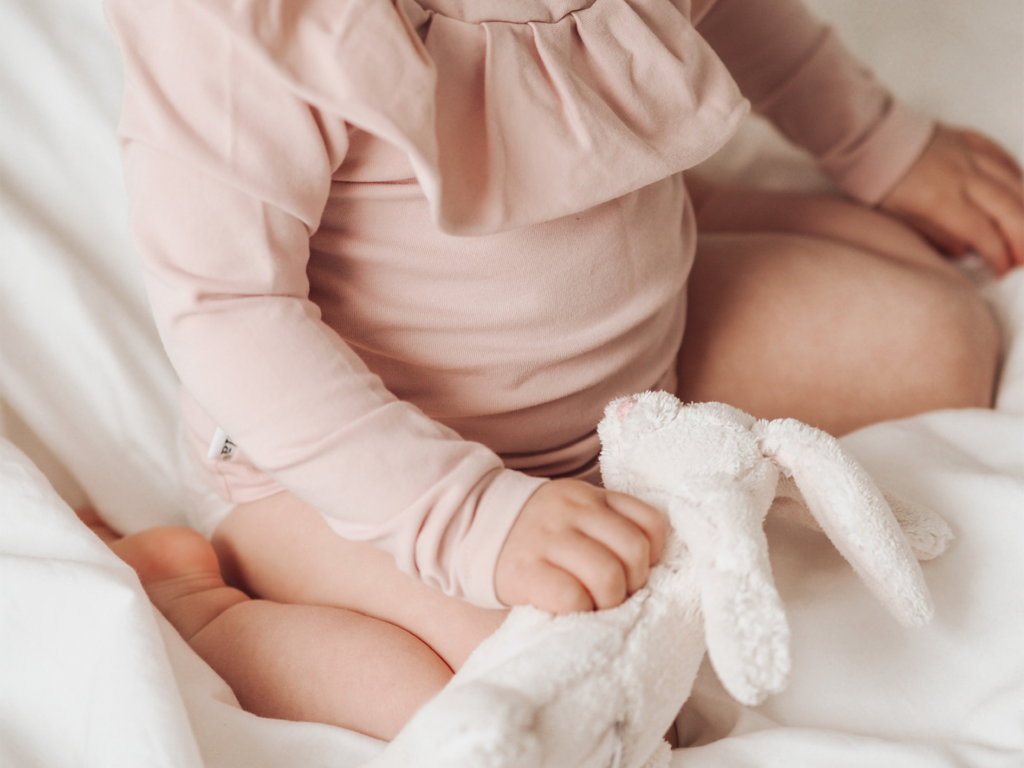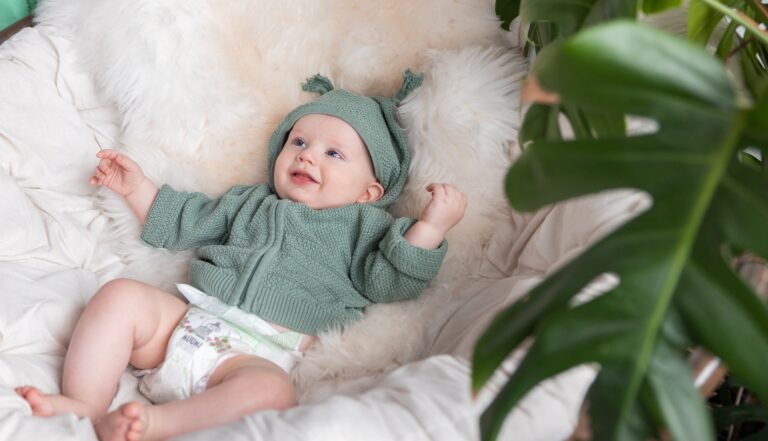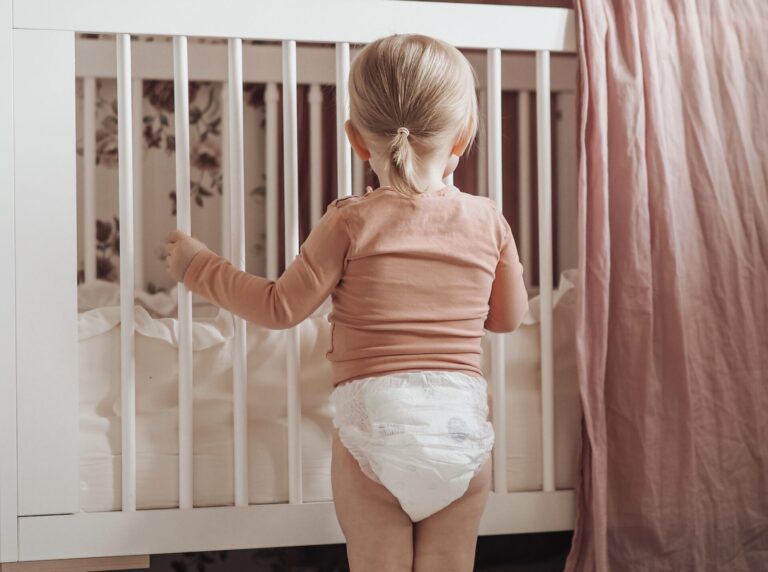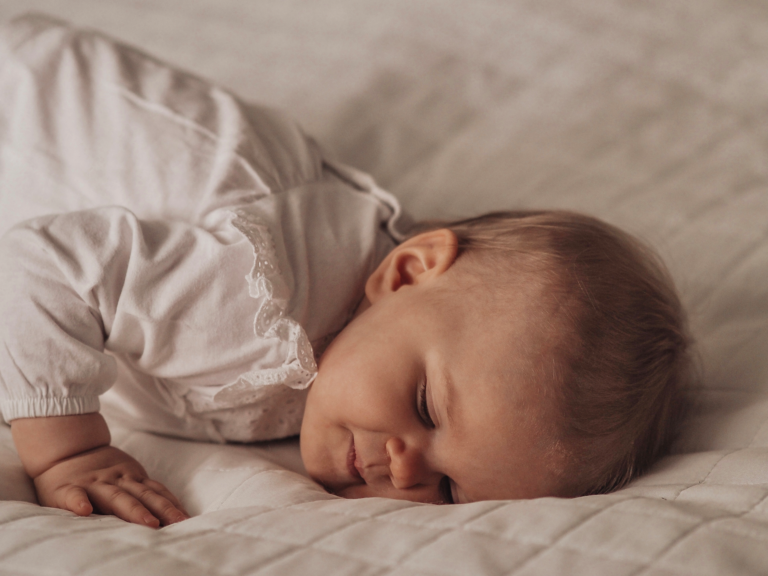Baby’s sleep deprivation is a common challenge for many parents, but its causes and effects are not always fully understood. This article examines what baby’s sleep deprivation is all about, what are its characteristics and what factors can be behind it. In addition, the ways we can prevent and treat a baby’s sleep deprivation are discussed. The goal is to offer practical tips that can improve the quality of the baby’s sleep and at the same time promote the general well-being of both the baby and the parents.
What is sleep deprivation like in a child?
A child’s sleep deprivation manifests itself as a situation where the child is tired and needs sleep, but for some reason they are unable to sleep properly or their sleep is disturbed. The need for sleep varies significantly depending on the child’s age: Newborns sleep almost all day, while children around one year old usually need 12-14 hours of sleep a day. If the child wakes up often, is restless or irritable, these may be signs of sleep deprivation.
Even during the day, the child may show irritability, tantrums or restlessness if they don’t get enough sleep. Signs of a child’s tiredness may manifest as physical symptoms, such as yawning, rubbing the eyes, or drooping the head. It is important to note that each child reacts to fatigue individually. Although naps can help children combat sleep deprivation, they are no substitute for adequate nighttime sleep. The importance of sleep for a child’s well-being is very great, as it affects the child’s growth, development, learning and mood.
Physical factors that affect a child’s ability to fall asleep
Physical factors play a big role in a child’s sleep deprivation. One of the most significant factors is the sleep-wake rhythm, which includes the alternations of activity and rest controlled by the human biological clock. In newborns, this rhythm is not yet established, but it develops and takes shape during the first months of life.
A child’s physical activity and development also affect their need for sleep: An active child needs more sleep than a more inactive child. In addition, the physical state of the baby and child can be affected by, for example, teething or stomach problems, which can make sleep restless or interrupted. When starting solid foods, the child’s digestive system may need an adjustment period, which can also reduce the quality of sleep. A child’s physical well-being and sleep can be supported with suitable routines, such as an evening bath and calming down before falling asleep.
Finding a suitable mealtime rhythm can help your child sleep better.
How can diet affect a baby’s sleep deprivation?
Diet can be a significant factor in a baby’s sleep deprivation. Especially for a small baby, frequent feeding intervals may disturb the sleep rhythm, although full breastfeeding is considered to offer the best possible nutrition. In addition, starting solid foods around six months of age may initially disturb the baby’s sleep rhythm. Food allergies or sensitivities can also affect the quality of sleep, causing pain or discomfort. Similarly, diet can also affect the sleep of older children. For example, cereal products can cause bloating or burping, which interferes with falling asleep. Sugary foods and drinks, on the other hand, can cause energy spikes and sleep disturbances.
Finding a suitable mealtime rhythm can help your child sleep better. It is especially important to ensure that the baby receives enough nutrients to guarantee a good and peaceful sleep. The child should be offered a varied, healthy and regular diet. Children’s development and sleep needs are individual. That’s why it’s important to discuss the effects of a child’s diet on sleep with a pediatrician or counseling service.
Check out our comprehensive guide to feeding your baby here!
How should parents react to a baby’s sleep deprivation?
Baby’s sleep deprivation is completely normal, but it requires understanding and patience from the parents. Firstly, it is important to recognize the signs of sleep deprivation. Signs of fatigue may include rubbing the eyes, whining, fussing or yawning. When you recognize these signs, it’s good to react quickly and give the child a chance for sleep. It is important to understand that sleep deprivation does not mean that the child is stubborn or misbehaving. It’s just a sign that the child needs rest.
It is good to create routines for going to bed. Routines bring a sense of security to the child and make it easier to fall asleep. Routines can include evening washing, reading a fairy tale or even an evening song. A decent evening snack also helps the child prepare for a night’s sleep. If the child develops sleep disorders, it is recommended to contact a pediatrician or a consultation. In this context, you can also look at the child’s diet and consider whether meals can affect their sleep. It is important to note that parents act as role models for their children, and their own sleep routines and attitudes towards sleep can also affect the child’s sleep.
Check out our tips for a 1 month old baby’s sleep here!

How do parents’ actions affect a child’s sleep rhythm?
Parents’ daily routines and lifestyles directly affect the child’s sleep rhythm. Especially regular bedtimes support the development of a child’s sleep rhythm. The sleep rhythm of newborns is still irregular, but gradually the sleep starts to focus more on the night time. A regular daily schedule, such as the rhythm of meals, outdoor activities and play, supports the development of the child’s internal sleep clock.
The parents example is also particularly important. The child adopts their parents’ attitude towards sleep. If the parents value sleep and its quality, the child will also learn to value sleep. A good and calming evening routine helps the child prepare for sleep and maintain a positive attitude towards bedtime. The parents’ reaction to night waking also affects the child’s sleep rhythm. If the child wakes up at night, the soothing and gentle presence of the parents helps the child to return to sleep. It is good to remember that every child is an individual and the sleep rhythm develops at its own pace. An encouraging and supportive attitude helps the child develop good sleep routines.
Find out how to give your six-month-old a better night’s sleep here!
Most common sleep disorders in babies and young children
Small children and babies can experience different sleep disorders, such as sleep apnea, night terrors, nightmares, wandering during sleep, and sleepwalking. Sleep apnea manifests as interruptions in breathing during sleep, which, for example, can be caused by enlarged tonsils. This may lead to restless sleep and daytime fatigue.
Night terrors are episodes in which the child cries and screams during nap time or early hours of the morning for no apparent reason. The child usually does not wake up during the scene and does not remember it in the morning. Although night terrors are usually harmless and go away on their own, they can be a stressful time for the family. Wandering during sleep means that the child has a tendency to wake up at night, but at the same time still be half-asleep, which blurs the boundaries between sleep and wakefulness. Sleepwalking is a condition where a child may get out of bed during sleep and move around, but remembers nothing of the event when they wake up. All these disturbances are usually transient and harmless. However, if they cause a significant disturbance in the life of the child or the family, it would be a good idea to consult a doctor.
The effect of stress on the sleep rhythm of a small child
Stress has a significant effect on a small child’s sleep rhythm, even if we don’t necessarily immediately associate stress with small children. However, children can experience stress in the same way as adults, and it can be caused by various factors, such as changes in the kindergarten, parents’ emotional states or the overall family situation. Stress can affect a child’s sleep in many different ways, such as causing restlessness, nighttime disturbances or nightmares. It can also cause the child to wake up frequently at night, and long-term stress can lead to chronic insomnia.
It is important that parents take the impact of stress seriously and know how to recognize the signs of stress in a child. Talking to the child and creating a safe environment can help the child deal with stress. Relaxing activities such as soothing bedtime stories and songs can also help the child calm down before going to bed. If you suspect that your child’s sleep disorder is caused by stress, it is recommended to seek help from professionals.
For more tips to help your baby sleep better, click here!
The most important task of sleep school is to teach the child that they can fall asleep on their own.
Sleep school: When and how to start?
Starting a child’s sleep school largely depends on the child’s own readiness and the parents’ needs. In general, it is good to start sleep schooling when the child is around 6 months old and already eating solid food. At this stage, the child’s sleep rhythm begins to become more like an adult’s, and night feeds may no longer be necessary. The most important task of the sleep school is to teach the child that they can fall asleep on their own. This requires routines that can be used to soothe the child to sleep. These can be, for example, evening washing, evening fairy tales and closeness. On the other hand, it is important to teach the child that they can calm down on their own. This means that it is good for the child to get used to sleeping in their own bed.
Sleep school is usually not an easy process and it requires patience from parents. It can be a good idea to choose a time when there are no other big changes or stressors in the family. The success of sleep school is made easier if both parents can be fully involved and support the child in learning. However, every child is an individual and age or reaching a certain stage of development does not necessarily mean that the child is ready for sleep school. Talk to a doctor or a counseling center if you doubt your child’s readiness for sleep schooling
Read more about sleep school here!
How do Moomin Baby diapers support your baby’s sleep?
Moomin Baby diapers are designed to support the child’s comfort and well-being, especially during sleep. The new, improved absorbency and structure ensure that moisture is distributed evenly throughout the diaper, maintaining its effectiveness and keeping baby drier for longer, even throughout the night. Dermatologically tested Moomin Baby diapers are made only from safe materials that do not contain allergens or harmful chemicals. This guarantees that even the most sensitive skin is not irritated, thus promoting a restful night’s sleep without interruptions caused by skin problems.
In addition, Moomin Baby diapers are now 100% carbon neutral. In the production of diapers, the entire life cycle of the product is taken into account in terms of the environment, from the production of raw materials to the production of diapers, the energy sources used, the logistics of wholesale stores and waste treatment. This makes Moomin Baby diapers an environmentally friendly choice that takes responsibility into account in all stages of production.
We welcome you to try Moomin Baby diapers by ordering a free Diaper hero sample here!











